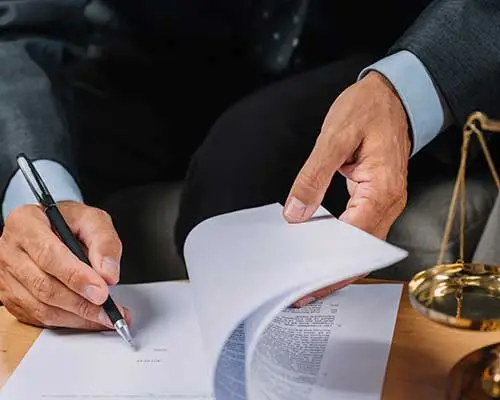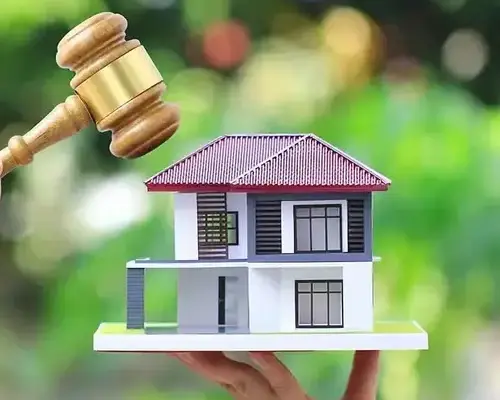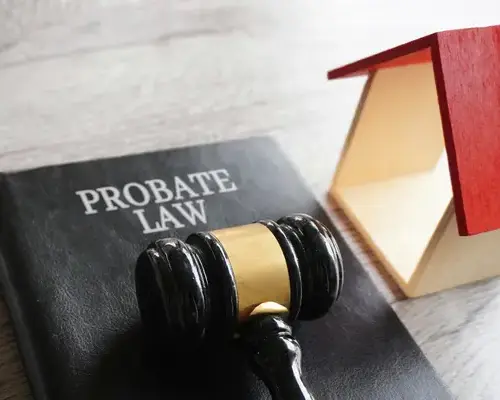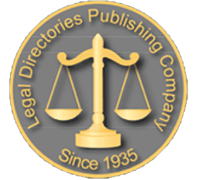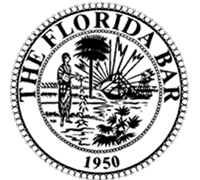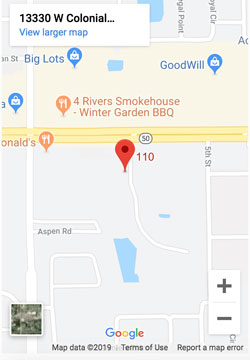What a Probate Litigation Attorney Really Does
Fighting over an inheritance can feel uncomfortable, and many people worry that hiring a lawyer will make them seem greedy. But most estate disputes are not about greed. They are about fairness, justice, and honoring a loved one’s true intentions. You may be fighting because you genuinely believe a will was the result of manipulation or that the person in charge is not fulfilling their duties responsibly. These are valid concerns that deserve to be heard. Protecting your rightful inheritance or ensuring a loved one’s final wishes are respected is not something to feel guilty about. A probate litigation attorney understands the sensitive family dynamics at play and acts as your advocate to ensure a just and fair outcome is achieved.
Key Takeaways
- Understand the specialist you need: A probate litigation attorney is a trial lawyer for estate disputes, distinct from a standard probate lawyer who handles uncontested administrative tasks. You need a litigator when conflicts like will contests or accusations of mismanagement arise.
- Act decisively to protect your rights: Florida has strict deadlines for filing estate claims. If you suspect something is wrong, seeking legal advice early is essential to preserve evidence and ensure you don’t lose your right to challenge the proceedings.
- Prioritize experience and clear communication: When choosing an attorney, look for a proven track record in Florida probate litigation and a communication style that makes you feel confident. The right lawyer is a skilled advocate who keeps you informed every step of the way.
What is a Probate Litigation Attorney?
When a loved one passes away, the process of settling their estate, known as probate, is ideally a straightforward administrative task. But when disagreements erupt among family members or beneficiaries, the situation can quickly become complicated and emotionally charged. This is where a probate litigation attorney comes in. Think of them as a specialized trial lawyer for wills, trusts, and estates. Their job is to represent clients in court when disputes arise over the distribution of assets, the validity of a will, or the actions of a personal representative.
While a standard probate lawyer guides an estate through the administrative process, a probate litigator steps in to advocate and fight for a client’s rights during a conflict. They handle the contentious side of estate settlement, from challenging a will to defending against claims of misconduct. These attorneys are skilled in negotiation, mediation, and, when necessary, courtroom trials. Their goal is to resolve disputes and ensure their client receives a fair outcome according to Florida’s complex probate and estate laws. They work within the court system to present evidence, argue legal points, and protect your interests when family harmony has broken down. Having an experienced litigator on your side can make all the difference in protecting your inheritance and honoring your loved one’s true intentions.
How They Differ from Standard Probate Lawyers
It’s easy to confuse a probate lawyer with a probate litigation attorney, but their roles are quite different. A standard probate lawyer is an administrator. Their primary function is to guide the personal representative through the probate process smoothly and efficiently when there are no major conflicts. They handle paperwork, notify creditors, and ensure all legal requirements are met for distributing the assets. Their goal is a seamless, uncontested administration.
A probate litigation attorney, on the other hand, is a courtroom advocate. They are brought in specifically when a dispute arises that cannot be resolved amicably. While a probate lawyer works to avoid conflict, a litigator’s job is to manage and resolve it. They represent beneficiaries, heirs, or personal representatives in legal battles. Their focus is on building a case, gathering evidence, and arguing on their client’s behalf in court or during settlement negotiations.
When is a Litigator Necessary?
You need a probate litigator the moment a significant disagreement threatens to derail the estate settlement process. These conflicts often arise from sensitive issues. For example, you might need a litigator if you believe a will is invalid because a loved one was pressured or coerced into signing it (undue influence) or wasn’t mentally capable of understanding the document.
Another common reason is when you suspect the personal representative is mismanaging the estate’s assets, failing to distribute property correctly, or acting in their own self-interest. This is known as a breach of fiduciary duty. Disputes can also erupt among beneficiaries over how to interpret vague terms in a will or how specific assets should be divided. If you find yourself in any of these contentious situations, it’s time to seek specialized legal counsel.
Common Misconceptions About Probate Litigation
One of the biggest misconceptions is that probate litigation always means a long, expensive court battle. While some cases do go to trial, a skilled litigator will often first attempt to resolve the dispute through negotiation or mediation. These alternative methods can save families time, money, and emotional stress. The goal is to find a resolution, not just to fight.
Another common belief is that these disputes are purely about greed. While financial interests are certainly at stake, many conflicts are rooted in complex family dynamics and genuine concerns that a loved one’s final wishes are being ignored. Someone might initiate a lawsuit because they truly believe the will doesn’t reflect the decedent’s true intentions. Hiring a probate litigation attorney isn’t about being difficult; it’s about protecting your rights and seeking a just outcome.
What Kinds of Estate Disputes Do They Handle?
When family tensions rise after a loved one’s passing, a probate litigation attorney steps in to manage the conflict. Their work covers a wide range of disagreements that can surface during the emotionally charged process of settling an estate. These attorneys handle the legal battles that arise when family members disagree on the validity of a will, the management of a trust, or the distribution of assets. They represent beneficiaries, heirs, and fiduciaries (like executors or trustees) to ensure that the deceased’s final wishes are honored and that the process is handled fairly and according to Florida law. From challenging a suspicious will to holding a trustee accountable, their role is to bring clarity and resolution to complex family disputes.
Will Contests and Validity Challenges
One of the most common disputes is a will contest, which happens when someone challenges the legal validity of a will. This isn’t just about being unhappy with what you inherited; there must be legal grounds for the challenge. For instance, you might argue that the person who made the will (the testator) was not mentally sound or was pressured by someone into signing it—a situation known as undue influence. Other challenges can arise from claims of fraud or improper execution, like if the will wasn’t signed or witnessed correctly. A probate litigation attorney helps gather evidence and build a case to either defend the will or prove its invalidity in court, ensuring your loved one’s true intentions for their estate planning are respected.
Trust Disputes and Modifications
Trusts are designed to avoid probate and streamline asset distribution, but they can also become a source of conflict. Trust disputes often involve disagreements over how the trust is being managed or questions about its creation. For example, beneficiaries might believe the trustee isn’t acting in their best interest or is mismanaging funds. In other cases, there may be questions about whether the person who created the trust (the trustor) had the mental capacity to do so. Sometimes, a trust may need to be modified due to changed circumstances, which can also lead to disagreements among beneficiaries. An attorney can help resolve these issues, whether through negotiation or litigation, to ensure the trustee is properly managing the trust according to its terms and the law.
Breach of Fiduciary Duty Claims
A person appointed to manage an estate or trust—like an executor, personal representative, or trustee—has a legal obligation, known as a fiduciary duty, to act in the best interests of the beneficiaries. When they fail to do so, it’s called a breach of fiduciary duty. This can include anything from self-dealing and stealing assets to simple negligence, like failing to pay taxes or properly invest funds, leading to financial losses for the estate. If you suspect a fiduciary is mismanaging assets or not fulfilling their responsibilities, you can file a claim against them. Our experienced attorneys can help you hold fiduciaries accountable for their actions and recover any damages caused by their misconduct.
Guardianship and Asset Distribution Conflicts
Disputes can also arise over the care of an incapacitated person or the final distribution of assets. Guardianship conflicts often involve disagreements about who should be appointed as a guardian for a minor or an incapacitated adult. These cases can become highly contentious, especially when family members disagree on what’s best for their loved one. Similarly, even with a will or trust in place, conflicts can erupt over how assets are divided. Heirs might argue over the interpretation of the will’s language or the valuation of specific assets. In these sensitive situations, it’s important to get legal guidance to protect your rights and find a fair resolution, whether you are advocating for a loved one or ensuring you receive your rightful inheritance.
When to Hire a Probate Litigation Attorney
Deciding to involve a lawyer in a family estate matter is a significant step, and it’s often one people hesitate to take. You might worry about creating more tension or incurring high costs. However, waiting too long can put your inheritance and your rights at risk. The key is to recognize the difference between normal family grieving and the early signs of a serious legal dispute. A probate litigation attorney is a specialist who steps in when people disagree about how a will, trust, or estate is being handled. Knowing when to bring one on board can be the most important decision you make during this challenging time.
Warning Signs a Dispute is on the Horizon
Trust your instincts. If something feels off about the probate process, it probably is. Red flags often appear early, and recognizing them is the first step to protecting your interests. You might need to speak with an attorney if you notice a sudden, last-minute change to a will, especially if the person who passed away was ill or isolated. Another major warning sign is a lack of communication from the personal representative or executor. If they are being secretive about assets, ignoring your questions, or delaying the process without a good reason, it’s time to get advice. Any hint of undue influence, fraud, or questions about the validity of a document are clear signals that you need professional legal guidance.
Why Acting Quickly Matters
When it comes to estate disputes, time is not on your side. Florida has strict deadlines, known as statutes of limitation, for contesting a will or filing a claim against an estate. If you miss these deadlines, you could lose your right to challenge the proceedings forever, no matter how strong your case is. Acting quickly also allows your attorney to preserve crucial evidence, such as financial records or medical documents, that could be lost or destroyed over time. Getting ahead of the problem can also prevent a small disagreement from escalating into a full-blown family war. Consulting with an attorney early is the best way to understand your specific situation and legal options before it’s too late.
Assess Your Risks
Before you make the call, take a moment to consider what’s at stake. Many disputes arise simply because family members disagree, but they become much more serious when there are claims of abuse or when a lot of money is involved. Are you at risk of losing a significant inheritance? Is a valuable piece of real estate or a family business on the line? Sometimes, the risk isn’t just financial. You may be fighting to honor your loved one’s true wishes or to protect a vulnerable family member from exploitation. Understanding the potential outcomes—both good and bad—will help you and your attorney build a clear and effective strategy from the start.
Weigh the Costs vs. Benefits
It’s no secret that legal fights can be expensive. However, the cost of inaction can be far greater. Think about the potential financial loss if you do nothing—it could easily exceed the cost of hiring an attorney to protect what is rightfully yours. A good lawyer understands that litigation is a financial and emotional drain. They will work to find efficient solutions, like mediation or early settlement negotiations, to save you money and stress. When you weigh the costs, consider it an investment in securing your inheritance, achieving a fair resolution, and gaining peace of mind. The ultimate goal is to protect your interests without creating unnecessary expense.
What to Look For in a Probate Litigation Attorney
Finding the right attorney when your family is facing a probate dispute can feel overwhelming. The stakes are high, emotions are raw, and the legal system can seem like a maze. You’re not just looking for someone with a law degree; you need a guide, an advocate, and a strategist who can stand by your side through a challenging time. The right probate litigation attorney brings more than just legal knowledge to the table—they bring experience, a clear communication style, and a deep understanding of Florida’s specific laws.
Think of this as a partnership. You’ll be sharing sensitive family information and trusting this person with a significant outcome. It’s essential to find someone whose expertise you trust and whose approach makes you feel confident and supported. The key is to look for a specific blend of skills and qualities that are tailored to the unique demands of estate and trust disputes. From their track record in the courtroom to their responsiveness to your calls, every detail matters in choosing the right legal partner.
Specialized Expertise in Florida Law
Probate law isn’t a one-size-fits-all practice; it’s incredibly specific to each state. An attorney who is a general practitioner might not have the focused knowledge required to handle the complexities of your case. You need someone who specializes in Florida’s probate code. A probate litigation attorney is the professional who steps in when people disagree about how a will, estate, or trust is being handled. They are dispute specialists.
When you’re vetting potential attorneys, ask them directly about their experience with Florida probate law. They should be able to speak confidently about local court procedures, judges, and the specific statutes that apply to your situation. This specialized focus is your greatest asset, ensuring that no detail is overlooked and that your case is built on a solid legal foundation.
A Proven Track Record in Court
While many probate matters are settled outside of court, litigation means you must be prepared for a trial. The attorney you choose should be a seasoned litigator who is comfortable and effective in a courtroom. You should look for a lawyer who has substantial experience assisting people through the probate process, especially when it involves conflict. Their background should include a history of handling cases similar to yours, from will contests to claims of fiduciary misconduct.
Don’t hesitate to ask about their courtroom experience during your initial consultation. Inquire about their success rate and how they’ve approached disputes like yours in the past. An attorney with a strong litigation background knows how to build a compelling case, anticipate the other side’s moves, and advocate fiercely on your behalf when it matters most.
A Communication Style That Works for You
Legal battles are stressful enough without feeling like you’re in the dark. Effective communication is absolutely essential for a successful attorney-client relationship. You need an attorney who can explain complex legal jargon in a way that makes sense to you, keeping you informed and empowered throughout the process. Your lawyer should be someone you feel comfortable talking to, someone who listens to your concerns and answers your questions patiently.
Pay close attention to your first interaction. Does the attorney seem rushed, or do they take the time to understand your story? A good lawyer will set clear expectations about how and when they’ll provide updates. This open line of communication builds trust and ensures you and your attorney are always on the same page, working toward the same goals.
Accessibility and Responsiveness
A brilliant legal mind is of little use if you can never get ahold of your attorney. While you can’t expect someone to be available 24/7, you have a right to timely responses. When a pressing issue arises, you need to know that your legal team will be there to address it. During your initial meeting, ask about the firm’s policy on returning calls and emails and who your primary point of contact will be.
A well-organized law firm will have systems in place to ensure clients’ needs are met promptly. Knowing you can reach your attorney or a knowledgeable paralegal when you have a question can provide immense peace of mind during a difficult time. This responsiveness is a key indicator of the level of service and personal attention you can expect to receive.
What to Expect in Legal Fees and Costs
Let’s talk about one of the biggest concerns when hiring an attorney: the cost. Facing a potential estate dispute is stressful enough without worrying about how you’ll afford legal help. The good news is that legal fees are often more straightforward than you might think, and understanding the financial side of things from the start will help you make a clear-headed decision. A transparent conversation about costs with a potential attorney isn’t just acceptable; it’s essential. It builds trust and ensures you and your legal team are on the same page from day one, preventing misunderstandings later on.
Before you even sign an agreement, a reputable attorney will walk you through their fee structure and explain what you can expect. This isn’t just about the hourly rate; it’s about understanding the full scope of potential expenses. This includes not only the attorney’s time but also the various administrative and case-related costs that can arise during litigation. Thinking about these things upfront allows you to plan accordingly and approach the legal process with more confidence. Remember, the goal is to find a legal partner who is not only skilled in the courtroom but also transparent about the financial commitment involved. This clarity is the foundation of a strong attorney-client relationship and is key to feeling in control during a challenging time.
Common Fee Structures Explained
When you hire a probate litigation attorney, you’ll likely encounter one of a few common billing methods. Lawyers usually charge by the hour, with a set flat fee, or on a contingency basis, which is often a percentage of the assets recovered. An hourly rate is just what it sounds like—you pay for the time the attorney spends on your case. A flat fee is a single, predetermined price for a specific service, which can provide cost certainty. For litigation, however, hourly billing is more common due to the unpredictable nature of a dispute. It’s crucial to ask for a detailed breakdown of how fees are structured during your initial consultation so you know exactly what to expect.
Budgeting for Additional Expenses
Your attorney’s bill isn’t the only cost to consider. Besides lawyer fees, there are other required costs like court fees and fees for filing documents. These are the administrative expenses of moving a case through the legal system. Depending on the complexity of your dispute, you might also need to budget for things like hiring expert witnesses (such as a forensic accountant), paying for depositions, or getting official property appraisals. A good attorney will be upfront about these potential “case costs” and help you anticipate them so there are no surprises down the road.
Understanding Your Payment Options
One of the most common questions is, “Who actually pays for all of this?” In many cases, probate lawyer fees are paid from the money and assets in the deceased person’s estate, not by the executor from their own pocket. This means you may not have to front the costs personally. The estate’s assets are used to cover the legal expenses incurred to defend or manage it. This arrangement can be a huge relief for personal representatives. Always confirm the payment plan and source of funds in your written fee agreement before moving forward with an estate planning and probate attorney.
How to Evaluate an Attorney’s Value
While it’s tempting to shop for the lowest price, the cheapest option isn’t always the best. The real value lies in an attorney’s experience and effectiveness. You should hire a lawyer who has substantial experience assisting people during probate litigation specifically in Florida. An experienced litigator can often resolve disputes more efficiently, potentially saving you money and stress in the long run. Think of it as an investment in peace of mind and a favorable outcome. When you meet the attorneys, consider their track record, their understanding of your specific situation, and whether you feel confident in their ability to protect your interests.
How to Prepare for Your First Meeting
Walking into a law office can feel intimidating, especially when you’re dealing with the stress of an estate dispute. But your first meeting with a probate litigation attorney is simply a conversation. It’s your chance to share your story and their chance to see how they can help. A little preparation can make a world of difference, helping you feel more confident and ensuring the meeting is as productive as possible. By organizing your thoughts and documents beforehand, you empower your potential attorney to give you clear, relevant advice right from the start. This preparation helps you make the most of your consultation and sets a positive tone for the entire process.
Your Pre-Consultation Checklist
To make your first meeting effective, it helps to do a little homework. Start by creating a brief, written summary of your situation. Include a timeline of key events, the names of the people involved, and a simple description of the conflict as you see it. This document will help the attorney quickly understand the core issues. Next, jot down every question you have. No question is too small. Your concerns are valid, and this is your opportunity to get answers from a professional who handles probate and estate planning matters every day.
Key Documents to Gather
While you don’t need every single piece of paper for an initial consultation, bringing key documents can save significant time. If you have them, gather the death certificate, the original will and any trust documents, and a list of the deceased’s known assets and debts. Assets might include bank statements, property deeds, and investment account information, while debts could include mortgages or credit card bills. Don’t worry if you can’t find everything; just bring what you can. Having these documents on hand allows the attorney to conduct a more thorough initial review of your case.
Establish Communication Ground Rules
Your first meeting is a two-way street. You’re sharing sensitive information, and you need to feel comfortable with the person you’re speaking to. Be prepared to be open and honest about the situation, as your attorney needs all the facts to provide the best advice. It’s also your chance to see if the attorney is a good fit for you. Do they listen carefully? Do they explain complex legal ideas in a way you can understand? You can get a feel for our team by reading about our attorneys before you even step into the office.
Outline Your Goals and Strategy
Before the meeting, take a moment to think about what you hope to achieve. What does a successful outcome look like for you? Are you trying to uphold the terms of a will, challenge its validity, or recover a specific asset? Having a clear goal helps the attorney understand your priorities and begin thinking about a legal strategy. It’s perfectly fine if your goals are still taking shape. An experienced attorney can help you define what’s realistic and possible under Florida law, giving you a clear path forward. When you’re ready, you can contact us to schedule that first conversation.
How to Protect Your Interests During a Dispute
Navigating an estate dispute can feel overwhelming, especially when you’re also dealing with the loss of a loved one. The good news is you don’t have to go through it alone. Taking a few strategic steps can help protect your interests, clarify your position, and set you on a path toward resolution. By staying organized and leaning on professional guidance, you can face the conflict with confidence.
Strategies to Prevent Future Conflicts
While you can’t change the past, you can influence the future. During a dispute, maintain clear, fact-based communication and try to keep emotions from driving your decisions. A realistic evaluation of your position, supported by evidence, is far more powerful than a heated argument. An attorney can help you manage communication, engage experts, and prepare for any formal proceedings. Taking these measured steps strengthens your case and helps prevent the conflict from escalating. Thinking ahead with proper estate planning and probate services can also prevent your own loved ones from facing similar disputes.
Organize Your Documents for a Stronger Case
When a dispute arises, good documentation is your best friend. Before meeting with an attorney, gather every relevant paper: the will, trust documents, estate financial statements, property deeds, and any related emails or letters. Create a simple timeline of events to give your legal team a clear background. Having these documents organized from the start allows your attorney to quickly assess your case’s strengths and weaknesses. This preparation saves time and money and provides a solid foundation for your legal strategy. It’s a critical first step in advocating for your interests.
Mediation vs. Litigation: Choosing Your Path
Not all disputes have to end in a courtroom. You generally have two paths: mediation or litigation. Mediation uses a neutral third party to help all sides negotiate a settlement. It’s typically faster, less expensive, and more private than court. Litigation is the formal court process where a judge makes the final decision, which can be a longer, more adversarial process. A skilled probate litigation attorney can help you weigh the pros and cons of each option. They have the experience to guide you through complex real estate law and estate disputes, helping you choose the path that best aligns with your goals.
Long-Term Planning to Safeguard Your Estate
Going through an estate dispute often highlights the importance of having your own affairs in order. It’s a powerful lesson in how unclear instructions can impact a family. Use this experience as motivation to review or create your own estate plan. Consulting with a qualified attorney is the best way to understand your legal options and ensure your wishes are clearly documented. A comprehensive plan, including a will, trust, and powers of attorney, is one of the greatest gifts you can give your loved ones. It provides clarity and minimizes future conflict. If you’re ready to take that step, our attorneys are here to help.
How to Find the Right Attorney for You
Choosing the right attorney is one of the most critical decisions you’ll make during a probate dispute. This person will be your guide, advocate, and strategist through a legally and emotionally complex process. The goal is to find someone with the right expertise who you also trust to represent your best interests. It’s not just about credentials on a website; it’s about finding a partner who understands your situation and can clearly explain your options. Taking the time to research and interview potential attorneys will pay off, giving you confidence as you move forward.
Where to Start Your Search
Begin your search by looking for an attorney with a strong background in Florida probate law. You can ask for referrals from friends, family, or other professionals you trust, like your accountant. The Florida Bar is another excellent resource for finding qualified lawyers in your area. As you review potential candidates, focus on their experience. You should look for a lawyer who has a robust track record in probate litigation, not just general estate planning. Check their websites to see if they have a dedicated practice area for these types of disputes and review the profiles of their individual attorneys to understand their specific backgrounds and successes.
Key Questions to Ask in Your Consultation
Your initial consultation is your chance to interview the attorney and see if they’re the right fit. To make the most of this meeting, come prepared. Gather all relevant documents, such as the will, trust documents, and any correspondence related to the dispute. Write down a list of questions ahead of time.
Consider asking:
- How many probate litigation cases like mine have you handled?
- What is your strategy for a case like this?
- How will you keep me updated on progress?
- What are the potential costs, and how is your fee structured?
- Who will be my main point of contact at the firm?
Red Flags to Watch Out For
As you meet with potential attorneys, keep an eye out for warning signs. An attorney who is unwilling to provide references or seems vague about their experience might not be the best choice. Be cautious of anyone who promises a guaranteed outcome—the legal system is unpredictable, and ethical lawyers manage expectations realistically. According to the law firm Rosen Hagood, you should be wary of attorneys who seem overly aggressive or push you to make a quick decision. Other red flags include poor communication, a disorganized office, or a general feeling that they aren’t listening to your concerns. Trust your instincts; if something feels off, it probably is.
Make Your Final Decision with Confidence
After you’ve done your research and completed your consultations, it’s time to make a choice. Don’t base your decision on fees alone. The cheapest option isn’t always the best, especially in complex litigation. Instead, choose the attorney who you feel most comfortable with and who demonstrated a clear understanding of your case and goals. The right lawyer will not only have the necessary legal skills but will also be someone you can communicate with openly and honestly. Choosing the right attorney can significantly impact the outcome of your case, so take your time to make an informed decision. Once you’ve found a firm that feels right, you can move forward with confidence.
Related Articles
- Probate Law – Legal Counsel P.A.
- Florida’s Trusted Estate & Probate Lawyers – Legal Counsel P.A.
- Probate and Real Estate in Orlando, Florida – Legal Counsel P.A.
- Trusts – Legal Counsel P.A.
- Formal Administration – Legal Counsel P.A.
Frequently Asked Questions
Does hiring a probate litigation attorney mean we’re definitely going to court? Not at all. In fact, one of the main goals of a skilled litigator is to resolve your dispute as efficiently as possible, and that often means avoiding a trial. They are experts in negotiation and mediation, which are structured processes to help families find common ground outside of the courtroom. Hiring an attorney is about preparing for a fight, but a good one knows that the best outcome is often a fair settlement that saves everyone time, money, and emotional strain.
I think my loved one’s will is invalid. How long do I have to challenge it in Florida? Time is a critical factor in these situations. Florida has very strict deadlines, known as statutes of limitation, for contesting a will. If you miss this window, you could lose your right to challenge it forever, no matter how strong your case is. The exact deadline depends on the specific details of your case, so it is essential to speak with an attorney as soon as you suspect a problem. Acting quickly gives you the best chance to protect your rights.
Can the estate pay for my legal fees, or do I have to pay out of pocket? This is a common and important question. In many probate disputes, the legal fees can be paid directly from the estate’s assets, especially if you are the personal representative defending the will or the estate itself. For beneficiaries or heirs filing a challenge, the arrangement can vary. A reputable attorney will have a transparent conversation with you about all fee structures and payment options during your first meeting so you can make an informed decision without any financial surprises.
What if I just have suspicions about the executor but no concrete proof of wrongdoing? You don’t need a perfect, fully-formed case to talk to an attorney. Suspicions are often the starting point. If the person managing the estate is not communicating, seems to be mismanaging funds, or is acting in a way that feels wrong, that is reason enough to seek legal advice. An experienced attorney can help you investigate your concerns, request financial documents, and determine if there has been a breach of their legal duties. Their job is to help you find the facts.
My family is just disagreeing over the estate. At what point does it become a legal dispute requiring a litigator? Simple disagreements are a normal part of the grieving process, but they cross the line into a legal dispute when communication breaks down completely or when someone’s actions threaten the assets of the estate. If the personal representative is refusing to provide information, if you believe someone exerted undue influence over your loved one, or if the terms of the will are being ignored, it’s time to consult a litigator. The key is to act when you feel your rights or your loved one’s final wishes are at risk.

